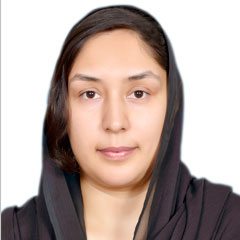Irfan Meraj, a Kashmiri journalist, has been arrested by India’s National Investigation Agency (NIA) from Srinagar. Meraj has been charged with terrorism and “inciting disaffection towards government through words.” A case has been registered against Meraj in New Delhi. Meraj is being called a criminal for inciting hate speech. Meraj has been a vocal journalist. He has written on the atrocities in Indian Illegally Occupied Jammu and Kashmir (IIOJK), and highlighted the plight of Kashmiri people. Are being truthful and raising a voice against oppression the credentials of a terrorist? Or this could be the new definition of terrorism where an individual who opposes the Modi regime’s draconian laws is called a terrorist. Mehbooba Mufti, Former Chief Minister of Jammu and Kashmir has remarked, “While conmen are given a free run in Kashmir, journalists like Irfan Mehraj are arrested for doing their duty by speaking the truth. Draconian laws like the Unlawful Activities Prevention Act (UAPA) are abused constantly to ensure that the process itself becomes the punishment.”
In civilized societies, people who write are well-respected and openness of thought and ideas is encouraged. Media and freedom of speech are the hallmarks of democratic societies.
Meraj and many other journalists, through their writings, have tried to reach out to a larger audience. These journalists have projected the ground facts and they have stood up for the righteous, oppressed and weak. Their actions should not be equated with terrorism. Irfan has worked with international media outlets like Boston-based @TCNLive, Al Jazeera and Deutsche Welle. He is the founding editor of Wande Magazine and the editor of the USA-based news organization, TwoCircles.net. Mary Lawlor, UN Special Rapporteur on Human Rights Defenders, has called for Irfan’s immediate release.
Democracy, justice and humanity are just the drama cards employed by India to malign other regional countries.
The arrests of journalists in IIOJK have become a trend now. Sajad Gul (a freelance journalist from Bandipora), Fahad Shah (founder and editor of the Kashmir Walla) and Aasif Sultan (Kashmir Narrator) have all been arrested. The arrests of journalists clearly show that India wants the media outlets to become India’s mouthpieces. Democracy, justice and humanity are just the drama cards employed by India to malign other regional countries. Many Kashmiri journalists have resigned due to India’s controlled media policy. The journalists were forced to file fabricated stories on Kashmir, carrying the BJP-RSS narrative. Naseer Ahmed is one such journalist who resigned from an Indian News channel. According to Naseer, he was being asked to file fabricated anti-Kashmir stories. Modi regime is employing tactics to break the resilience of the Kashmiri people. Making the work environment difficult so that people are left with no other option but to resign. Without a job, economic deprivation brings people to terms.
India, which happens to be a democracy, is home to a large number of Muslims. India projects its secular and liberal character to the outside world and has won appreciation for that as well. Well, those who perceive India from the Bollywood lens should also take a wider picture of the country’s so-called progressive image. A prominent Kashmiri human rights activist, Khurram Parvez, was arrested by India’s NIA. Parvez’s crime was that he had documented human rights violations and unlawful killings in IIOJK, and shared that with the UN. Parvez is Chairman of the Asian Federation Against Involuntary Disappearances (AFAD) and Coordinator of the Jammu Kashmir Coalition of Civil Society (JKCCS).
The way India has suppressed the right of self-determination of Kashmiris by violating the United Nations Security Council resolutions and by abrogating Articles 370 and 35-A reflects extremism.
These inhumane actions by India need condemnation internationally.
The international human rights and humanitarian bodies as well as the civil society activists need to speak up for the illegal arrests of journalists in IIOJK and freedom of speech.
The writer is a Research Associate at Islamabad Policy Research Institute (IPRI).
